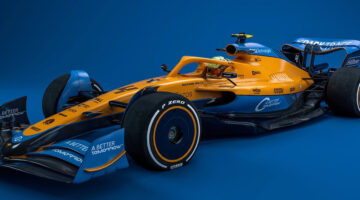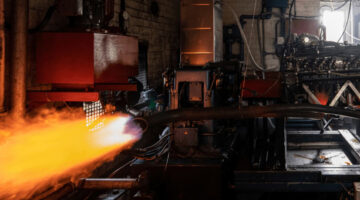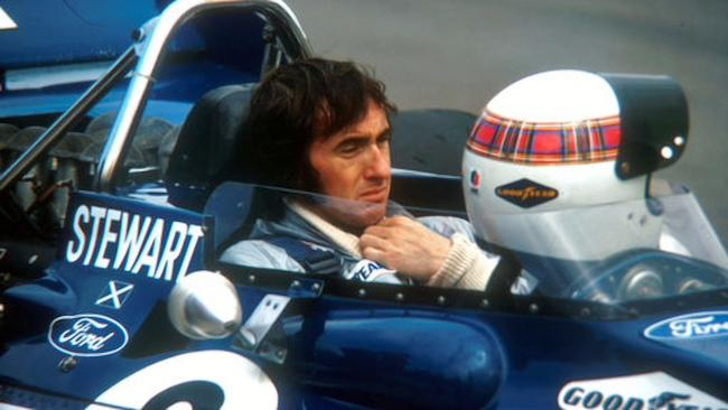
Was there ever any doubt in your mind that you’d made the wrong choice?
“No, no doubts. I was totally aware that it was the right thing to do, and I had no regrets. None. I had no wish to go back either.”
Your departure in 1973 would have left the way clear for your teammate Francois Cevert to become Tyrrell team leader for 1974, had he not succumbed to injury at Watkins Glen at the season finale. Hard to believe 40 years have passed….
“Actually I went to Paris this year on the same day that he died to celebrate his life with his brother-in-law and his sister, who is married to Jean-Pierre Beltoise. There was a good representation from Elf and Ford [Tyrrell title sponsor and engine supplier respectively], and everyone who was involved. There were 400 people who sat for lunch and there must have been another 600 people out there. It was well-publicised and it was just a very nice thing to attend.”
It’s no secret that you had a very close relationship with Francois…
“Fantastic. He was like a brother, or a son almost. It was the ultimate professor-student relationship, but it was much deeper than that. He knew Helen very well, and he stayed at our home many times. He was a close, close friend.”
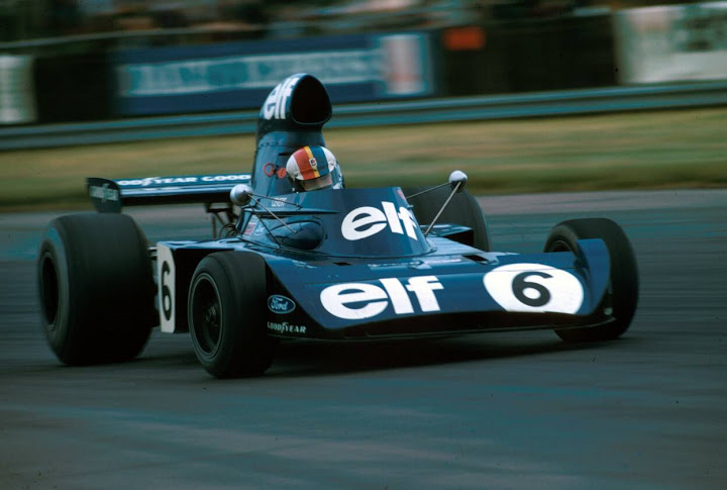
A slightly harsh question I’ll admit, but what would have felt more special to you: a fourth world championship or Francois’ first?
“Francois’ success, and a world championship. I certainly think he would have won one. His last year was his best” – despite his only victory coming at the 1971 United States Grand Prix, Francois Cevert finished on the podium seven times in 1973 from the 14 races he started and scored more points than his first three seasons combined – “He was getting better with each race, and he would have been better still in 1974. I know that from analysis of my own performance.”
Given the emotion involved that season, not least Francois’ accident and winning at that point more races than any F1 driver in history, does your 1973 crown hold any extra significance over the others?
“Well the first one is always good, but knowing that I was never going to drive a race car around a circuit again did make the last one something special. Nobody else knew [about my retirement during the season] apart from Walter Hayes at the Ford Motor Company and Ken Tyrrell. Even my wife Helen didn’t know. For me to know that I was never going to go to Monaco again or Spa again, and win, and win the championship, that made 1973 a nice one.”
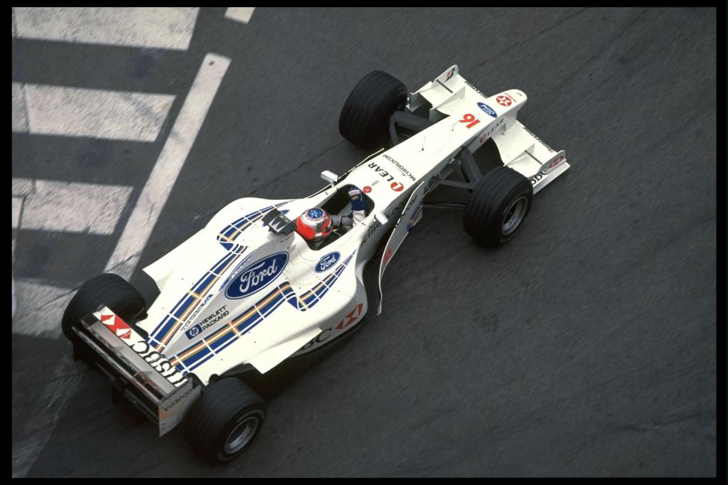
You’ve enjoyed – I think is the correct term(!) – life on both sides of the fence, as a driver and a team principal. Was one harder than the other?
“Oh, no question being a team principal was considerably more difficult and challenging than being a driver. Everything is done for you as a driver and you’re very pampered.”
It’s no secret that the two key races were the 1997 Monaco Grand – where Rubens Barrichello finished second in only the team’s fifth race – and the 1999 European Grand Prix, where Johnny Herbert scored the team’s only victory. Did Stewart Grand Prix have what it takes to be a regular frontrunner?
“All except the money, and that’s why I sold it. I didn’t see myself at that time being capable of getting the multinationals. I mean, I had HSBC, I had Hewlett Packard, I had Texaco, I had the Ford Motor Company – I spent 40 years with Ford – and I had Bridgestone. But I couldn’t see them upping their investment to the level that Marlboro [Ferrari sponsors] had at that time. And I said no to cigarettes. I didn’t want to go the tobacco route. So I decided to sell. But we never had a day’s overdraft, and we never had an equity partner.”
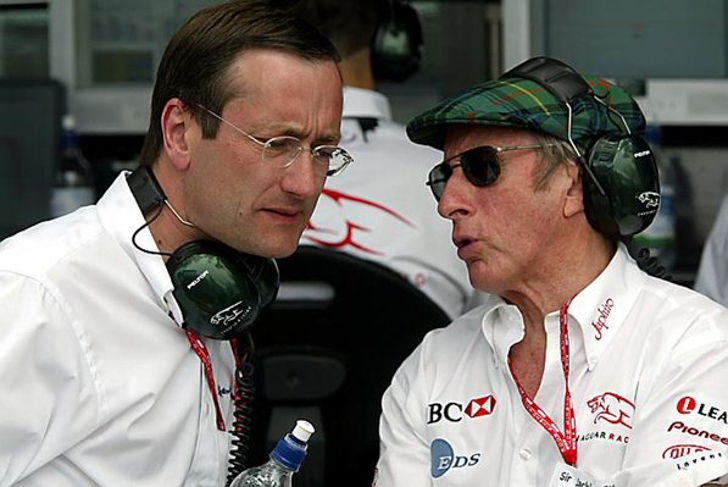
The team now exists as Red Bull Racing, who’s success speaks for itself. But before that came the much-maligned Jaguar Racing. Why didn’t that work?
“Well, that’s a totally different thing. I sold the company, and the senior management and the board of Ford wanted me to stay as a director. They had a board: you don’t have a board in a Formula 1 team. It was the best example of the big multinational trying to operate the corner shop. The family run that, because they know where every box of matches and every Marlboro is. So with Ford, if management wanted to do something they would approach the board, who then gave their approval, and then it had to go back to Detroit. Waste of time. And they had five team principals in a very short space of time [from 2000-2004, Tony Purnell, Niki Lauda, Bobby Rahal, David Pitchford and John Hogan each held the top spot].”
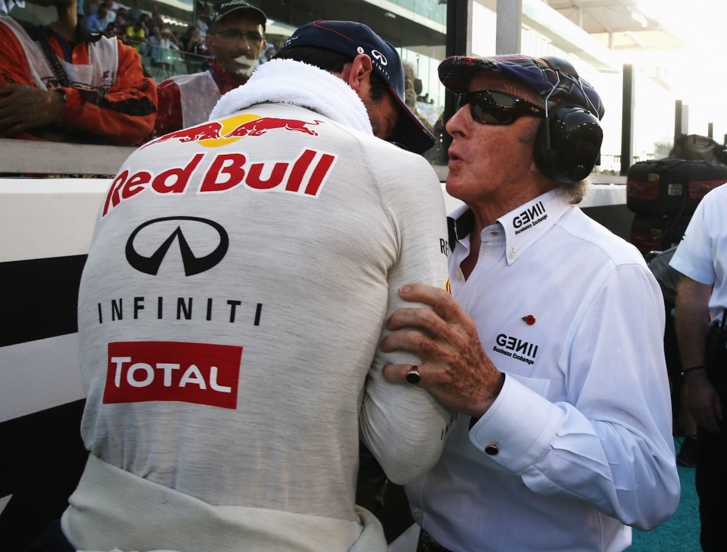
Nearly ten years on since Red Bull took over Jaguar Racing, the team has won every championship since 2010, taken 45 victories and 55 pole positions, and is now the fifth most successful team in F1 history. Not bad for your ‘old team’…
“Red Bull has got very good management, very good people. But there’s only so much that everyone can take, away from their families, the long hours involved, all those things. And if that just goes off the boil even slightly, there’s always someone trying hard to get you off the ladder. So it’s not impossible for the rest of the season to see Red Bull perhaps not getting quite as much success as we’re so used to. So don’t be surprised if we see that.
“Having said that, they’ve probably got a better infrastructure, and more financial backing. Keep in mind that everybody in the factory gets the benefit of a bonus when they win a championship, particularly the Constructor’s. And it’s a significant amount of money. So all of these things happen, but then suddenly sometimes there’s a little hole in the road, so look out for that. On the other hand, Christian Horner is an exceptionally good chief executive officer, and I suspect that he’ll be fighting against that knowing it can happen. Winning every year is very difficult.”
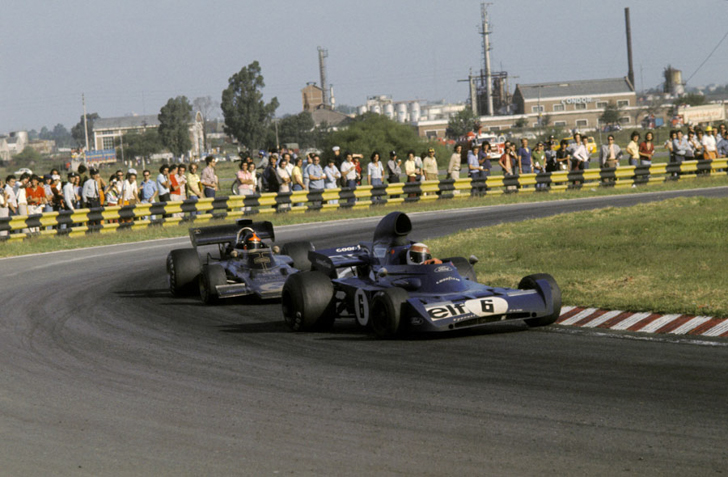
One of the big Formula 1 talking points at the moment is the driver market, and with Kimi Raikkonen heading to Ferrari next year, the Lotus F1 Team is right in the middle of it. As a former team principal, is there someone in particular you’d have your eye on?
“I don’t know who they’re going to have yet, but I would look very heavily at [Nico] Hulkenberg. I would have looked very closely at [Paul] Di Resta as well: nothing to do with Scotland! But he’s had a bad tail end of the season, both mechanically and with the odd accident. So he hasn’t had the performance at the end of the season as he had at the beginning, and at the moment he might not be the pick of the bunch. But the rumours are that [Pastor] Maldonado is being considered, and if he changes as much as [Romain] Grosjean changed in 12 months then it wouldn’t be a bad buy. But whether he has the mind management to make that change I don’t know.”
As we’ve seen this year, there’s certainly no end to front running competition…
“Yes. Mercedes are desperate to win. McLaren are desperate to get a podium: can you imagine that they haven’t had a podium all year! And the Lotus team are very competitive. I mean, for race distance rather than qualifying, so you can see Grosjean being a major player. World championship points are important for that team at the moment, so Lotus is a good team to be looking at.”
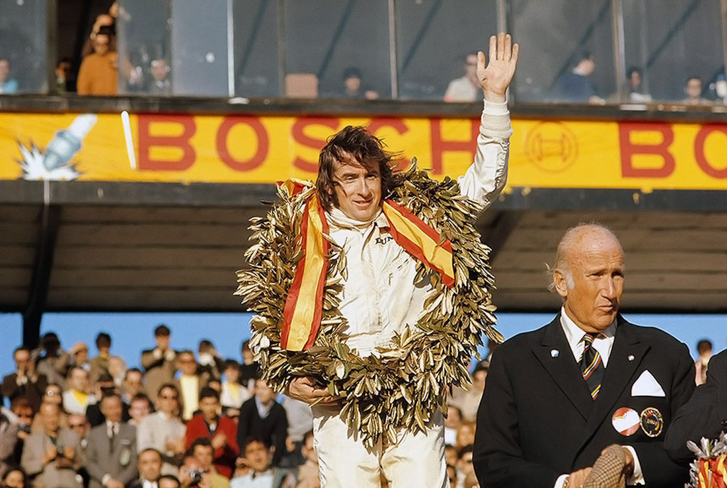
Given your pioneering work to improve safety in Formula 1 during the 1960s/1970s, the precautions taken by teams and drivers today must be unrecognisable…
“Well safety has come a long way. When I was driving, it was an open field really, therefore we got a lot done. So from that point of view, I’m probably more proud of that than I am of anything else. It’s quite interesting actually, it’s the one thing that the FIA has never recognised. Since the governing body at the time was doing such a bad job, I had to fight to get race circuits instructed to do things. And they weren’t doing it, so there’s a little pebble in there somewhere.”
Bearing in mind Allan Simonsen, Sean Edwards and even Maria De Villota this year, how much further do you feel motorsport safety has left to go, given that the sport is intrinsically dangerous?
“Never stop. You’ve got to keep looking at new ways of doing business, new materials come along, new opportunities, new people. You can never stop the bus. The sport has come a long way and there’s no reason it can’t keep going.”
– Shots courtesy of Formula1, F1fanatic, Biser3a, libertaddigital.com and staticflickr.com


